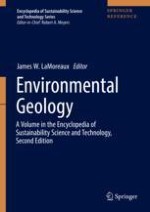2019 | OriginalPaper | Buchkapitel
Desertification and Impact on Sustainability of Human Systems
verfasst von : David Mouat, Scott Thomas, Judith Lancaster
Erschienen in: Environmental Geology
Verlag: Springer US
Aktivieren Sie unsere intelligente Suche, um passende Fachinhalte oder Patente zu finden.
Wählen Sie Textabschnitte aus um mit Künstlicher Intelligenz passenden Patente zu finden. powered by
Markieren Sie Textabschnitte, um KI-gestützt weitere passende Inhalte zu finden. powered by
